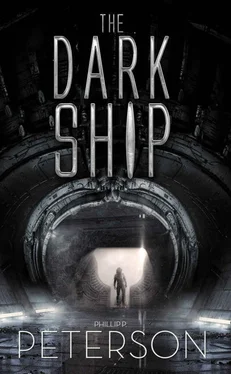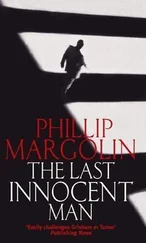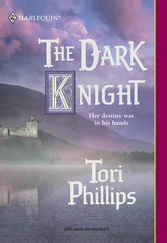The major smiled at him and nodded. “It’ll pass. The first mission is always the worst. After that you know what to expect and are mentally better prepared.”
Jeff saw things differently. For the first time in his life, he had been a whisker away from death. They were the only one of five ships to have survived the mission. He was pretty sure he would be feeling far more nervous before the next mission.
Forty-nine missions to go—basically I’m already a dead man!
“I can’t imagine ever getting used to it,” Jeff responded.
The major suppressed a laugh. “Believe me, you will. In fact, you can even become addicted to the adrenalin kick.”
Jeff frowned at the major, who was still smiling. Is that what the major was? Addicted to the adrenaline rush of near death? Is that why he was always so calm and matter-of-fact—because he was secretly enjoying it all?
The major seemed to have guessed what he was thinking. “No, Captain Austin, I’m not in it for the kick. I don’t go looking for danger. I’m just as afraid of death as you. But between missions you inevitably think about death.” He paused a moment, searching for the right words. “You think about so much—about death, about life, about the point of it all. And above all, about your place in the middle of all the chaos. But after about the thirtieth mission, something goes ‘click’. I’ve heard it from other experienced officers, too. Suddenly you stop thinking about it, because you come to the conclusion that humans, with their limited mental faculties, can never grasp the meaning of it all, anyway. Then you stop driving yourself crazy between flights. Finally, you can sleep again.”
Jeff looked at his superior for a long time as he mulled over his words. “Are you saying that you’ve resigned yourself to dying?”
Irons chuckled. “On the contrary. I’ve resigned myself to living. And death is an integral part of life. We all have to die, and it can get us at any moment, whether you’re in combat or riding your motorcycle. My best friend was a bomber pilot in the Orion Offensive. He volunteered for the most dangerous missions until he received an honorable discharge.”
“What happened to him?”
“He died of a heart attack. Shortly after his return to Aldebaran-6.” He sighed. “And I guess you heard about my son?”
Jeff nodded. Everyone on board knew the story. Irons had a wife on Lambda-3 and their son had died from Caroll’s Fever. He had been born with it. After the war broke out, the only drug that could help him was no longer available, and the four-year-old boy died painfully from the degeneration of his nerve cells. “Yes, I heard about it. What was his name?”
“Jack. But do you see what I’m getting at?
Jeff hesitated. “I guess it gives me something to think about.”
Irons laughed again and made a dismissive gesture with his hands. “I’m going to tell you something: people die. Without this war and also because of this war, even if they’re not sitting at the helm of an interstellar bomber.”
“But—we’ve lost four ships,” Jeff blurted out. “Forty people died. And that’s just on our side. Do you think the sacrifice was worth it?”
Irons exhaled slowly. “You were at the briefing. We have to clean up the sector so that we can advance on the heartland of the Alliance.”
Jeff shook his head. “I know that. But that’s not what I mean.”
“Then what do you mean?”
“I mean: what price… how many victims… was the Acheron 4 base worth? The forty men and women we lost? Would the destroyed bases have been worth a hundred of our soldiers? How do you measure human life against strategic advantages?”
The major gave him a long hard look, then whooped with laughter.
Jeff grimaced. What was so funny about his question?
The major answered before Jeff had time to retort. “Once again, it’s the academic in you speaking. Although perhaps you’re studying the wrong subject. Instead of a historian, you should have become a philosopher.” The major laughed again and wiped the tears from his cheeks.
“I think those are legitimate questions,” Jeff said, making sure to keep his voice neutral and not to sound offended. “Military conflicts need to be processed and evaluated. Ethical questions need to be considered in addition to strategy.”
Irons groaned. “Where did you pick that up?”
“Excuse me?” Jeff couldn’t keep the irritation out of his voice now.
“A sentence as polished as that must have come from one the textbooks you were forced to read at the Academy. It sounds like an existential justification of your profession to a court of inquiry.”
Jeff shrugged helplessly. As far as he knew it wasn’t a quote from a textbook. But of course, it was possible that he’d absorbed it in the early days of his studies and that the sentence had been slumbering in his subconscious until he needed it. “You may be right, but when this war is over, there will be analyses and studies written about it, and ultimately about every single mission. And then questions will arise as to whether the goals achieved justified the loss of human life and materials. In the history books—”
Irons bellowed with laughter again. The scars on his left cheek turned his face into a grimace, but his eyes radiated warmth and friendliness. Jeff realized his commander wasn’t laughing at him but at the situation they were in. “Captain Austin. How about we win this war first and then worry about how it goes down in the annals of history? If we lose, it’ll be Alliance historians writing the history books.”
“In the end it will all boil down to the same thing.”
Irons shook his head adamantly. “Ask your professor. In the end, history is always written by the winner. I’ll give you an example: What did we do today?”
Jeff knew it was a rhetorical question so he didn’t reply.
“I’ll tell you: we destroyed a planet with our Quagma bomb. Not only did we eradicate a military base, we turned a whole planet—that at some point might have produced life—into a bunch of atoms.
Jeff still didn’t know what the major was getting at. “Are you trying to say the Alliance would present us as war criminals if they won?”
“As I said, the winner writes the history books. We committed atrocities—”
“—that the Alliance committed, too,” Jeff interrupted him.
The major shook his head. “They’ll dismiss the murders they committed as a necessity provoked by us. Just as we will, except the other way round. But think ahead a hundred years, when both the Empire and the Alliance have made way for another regime. How will this conflict be seen then?”
Jeff remained silent.
“If it’s a more sensible society than ours, it will criticize both our deeds and those of the Alliance, and dismiss both sides as barbarians,” the Major said firmly.
“That would mean that you hold this conflict and our actions in contempt, Major,” Jeff concluded.
Irons shook his head again. “We’re at war. We’re fighting for our lives and our freedom. Of course the stakes are high. We have no other choice.”
“Then I don’t understand…”
“All I’m trying to say is that there is no such thing as objectivity. If you survive the war and go on to write your books, you’ll do so from the subjective perspective of the winning side. Perhaps your history book will remain the standard work of the Imperial universities for several centuries, like Gibbons’ Decline and Fall of the Roman Empire —it’s possible.” Irons smiled at him. “But someday the perspective will change again. The conflict will be romanticized or a more objective view will emerge. Who knows? But your work will land on the rubbish heap of history, or it will be read as an example of an outdated perspective and will be picked apart in lectures.”
Читать дальше












